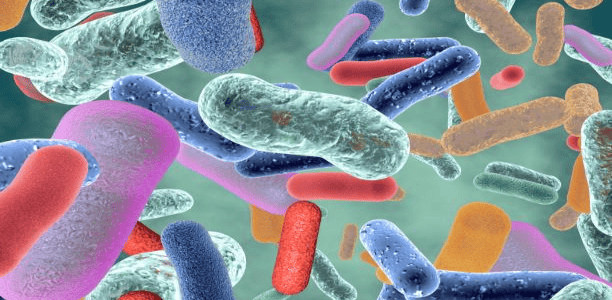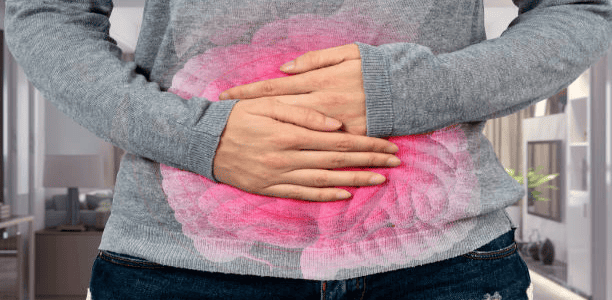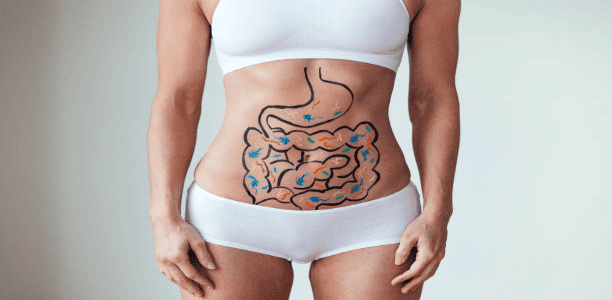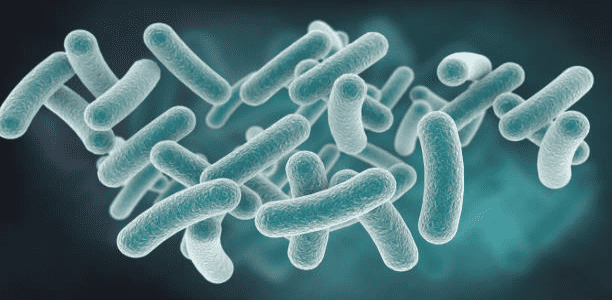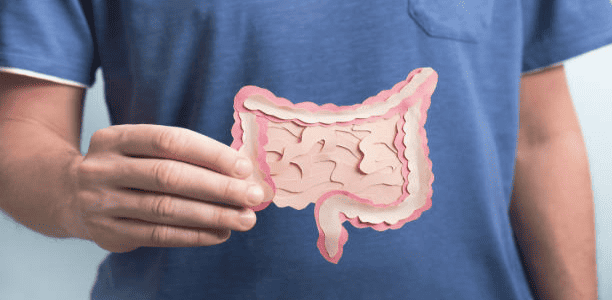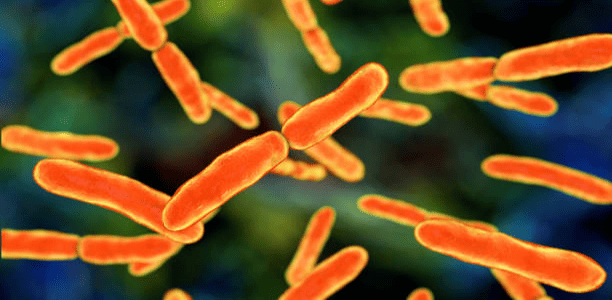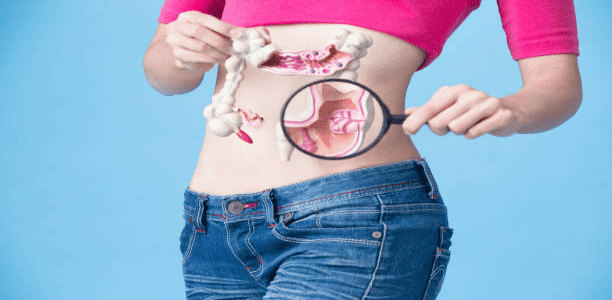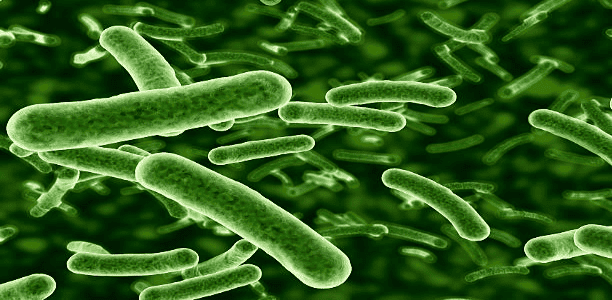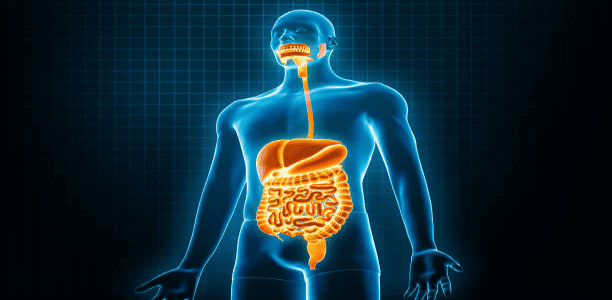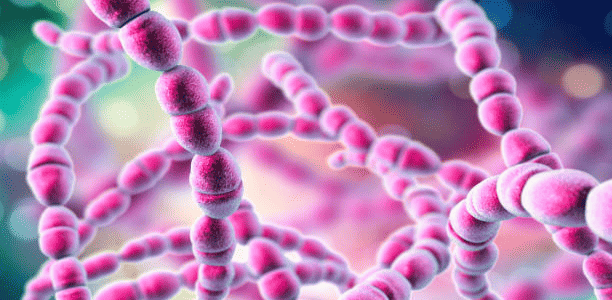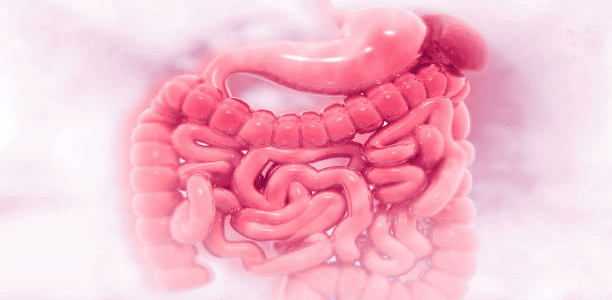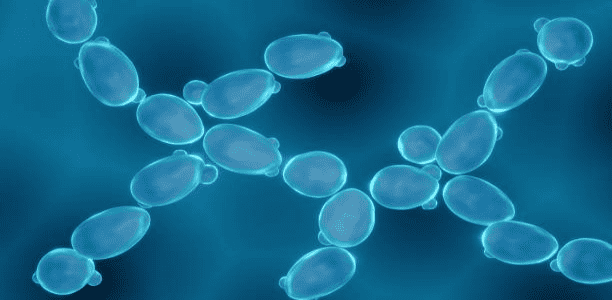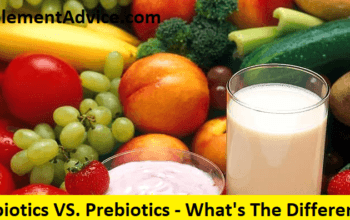
Let's talk about the 5 Best Bacteria Strains For Gut Health and IBS.
So what should you look for in a probiotic supplement?
What are their main goals and benefits?
Well – in this article, we're going to look at the ideal combination of bacteria strains.
In that way, you will understand what you should look for in a supplement.
Note: This article includes references and studies on bacteria strains, gut health and IBS.
Best Bacteria Strains For Gut (In A Nutshell)
Firstly – our gastrointestinal tract contains trillions of microorganisms.
The gut microbiota is the collective term for these specific microbes.
In addition, there's a balance between the beneficial and harmful bacteria.
But a higher number of harmful bacteria can lead to several gut issues, like IBS.
To fight that problem, it's important to consider taking probiotics.
So in this article, we're going to focus on the 5 best strains for your gut health:
- Lactobacillus
- Bifidobacterium
- Bacillus
- Streptococcus
- Saccharomyces
Generally – these strains (and some certain species under them) are safe for human health.
In fact, they all have a lot of similarities in terms of benefits.
But the most common ones include:
- stopping the growth of pathogens
- protecting the GI tract
Now – you can find these strains in several probiotic products (as well as fermented foods and drinks).
But where and how are you going to get their benefits in one shot?
Well, you should consider finding a probiotic supplement containing those bacteria strains.
However – take note that taking a supplement is not enough.
You should also be aware of how to take it correctly.
Also, there are several other aspects to consider:
- do some research about probiotics
- find out when it's best to take them
- understand if you really need them
In that way, you can avoid the potential adverse reactions they might cause.
Lastly, you need to maintain a balanced diet and manage your stress in order to maximize its effects.
Bacteria Strains and Gut Health
As we all know – our gut contains trillions of microorganisms.
These specific microbes that reside in our gastrointestinal tract are referred to as gut microbiota [1].
If you're curious, they have several roles in our digestive system [2]:
- support food digestion
- help with nutrient absorption
- improve mental well-being
- contribute to cognition and mood
- modulate the immune system
- offer protection against pathogens [3]
There are beneficial and harmful bacteria strains in our intestinal flora [4].
An imbalance in these bacteria leads to health consequences..
With that, it's very helpful to maintain the population of beneficial bacteria.
One way to do this is by taking prebiotics.
In case you didn't know, prebiotics can help probiotics thrive [5].
But probiotics don't only improve general digestion – they also improve conditions like IBS [6].
With that, choosing the right bacteria strains will help you alleviate and treat issues like IBS.
So what are these beneficial bacteria strains?
Well – let's list them below and dig deeper into each of them.
#1 – Lactobacillus
Firstly – Lactobacillus is probably the most common bacteria strain for gut health.
That's because it has the ability to produce lactic acid [7].
Now – it has several effects on the gut, but its main goal is to prevent pathogenic bacteria.
Most specifically, it creates a hostile environment in the gut to stop them from thriving [8].
With that, here are the main roles of Lactobacillus in the digestive system [9]:
- protects the intestinal barrier
- secretes anti-microbial substances
- inhibits the growth of pathogens
- boosts the immune response to kill harmful bacteria
- prevent the development of infections
- improves digestion and alleviates several digestive issues
- reduces weight gain, inflammation and cholesterol [10]
Now – let me give you the top species under this bacteria strain:
- Lactobacillus plantarum
- Lactobacillus reuteri
- Lactobacillus rhamnosus
- Lactobacillus gasseri
- Lactobacillus acidophilus
- Lactobacillus salivarius
- Lactobacillus fermentum
- Lactobacillus casei
- Lactobacillus paracasei
At first – most of the species above might sound complex or too technical.
But actually, you can find them in the form of foods, beverages and supplements.
So it's not very hard to incorporate Lactobacillus into your everyday routine.
#2 – Bifidobacterium
Let's now move on to another top bacteria strain.
It's Bifidobacterium, which is one of the most abundant bacteria in our GI tract [11].
So it's obvious why it's very crucial to sustain its population on the inside.
But why is it important to keep it at a healthy level?
Well – it's due to the essential roles of this strain in the gut [12]:
- offers protections in the intestine
- promotes the production of important metabolites
- strengthens the barrier of the gastrointestinal tract
- stimulates the functions of the immune system
- has anti-inflammatory properties
- decreases intestinal permeability
- improves abdominal pain and other symptoms associated with IBS [13]
To summarize, Bifidobacterium maintains human health by protecting the gut.
With that, here are the most prevalent species of this bacteria strain:
- Bifidobacterium longum
- Bifidobacterium bifidum
- Bifidobacterium breve
Just like Lactobacillus, Bifidobacterium can also be found in different products.
To give you an idea – it's present in yogurt, fermented foods, probiotic supplements and more.
So having a healthy gut is achievable, as long as you partner it with a healthy lifestyle.
#3 – Bacillus
Another bacteria strain that you should consider adding to your diet is Bacillus.
It's known to produce antimicrobial effects against pathogenic bacteria [14].
It's mostly active against the enteric microbes that can cause diseases in the intestines [15].
In addition – here are its other roles for gut health [16]:
- reinforces intestinal barrier integrity
- limits intestinal inflammation
- supports the production of gut-essential enzymes
- helps in breaking down food into smaller molecules
- aids in the metabolism of carbohydrates, fats and proteins
- improves absorption of proteins and other essential nutrients
- boosts muscle health and immune functions [17]
- manages several gastrointestinal disorders such as IBS [18]
As usual, we're going to list down the species that are commonly found in probiotic products:
- Bacillus clausii
- Bacillus subtilis
- Bacillus coagulans
Additionally, Bacillus can tolerate the harsh nature of our GI tract [19].
In other words, this strain can reach your gut safely (without being eliminated without absorption).
So that's why it's one of the best bacteria strains that you should find in a probiotic product.
That especially if you want to keep your gut healthy and functioning properly.
Lastly – most probiotic supplements for IBS contain this specific bacteria strain.
#4 – Streptococcus
The next type of bacteria strain that's helpful in gut health is Streptococcus.
Now – it also produces lactic acid, which is essential in stopping the growth of pathogenic bacteria.
Other than that, here are its other contributions to gut health [20]:
- stimulates the gut immune system
- produces antioxidant compounds
- has anti-inflammatory and antimutagenic effects
- ameliorates microbial balance in the intestinal tract [21]
- enhances intestinal health
- relieves overall IBS symptoms and improves stool consistency [22]
So far, the Streptococcus thermophilus is the most popular species under this bacteria strain.
It's the most studied one (when it comes to safety and benefits for gut health).
Overall – you can easily find it in the form of yogurt, supplements or fermented dairy products.
#5 – Saccharomyces
Lastly – selected species of Saccharomyces are also found to be beneficial for the gut.
But the most common version in a lot of probiotic products is called Saccharomyces boulardii [23].
Now, let me list its effects on gut health [24]:
- decreases the duration of diarrhea
- improves Irritable Bowel Syndrome (IBS)
- prevents relapses of Inflammatory Bowel Diseases (IBD)
- treats moderate symptoms of ulcerative colitis
- destroys the composition of bad bacterial species [25]
- restores intestinal barrier function
Now – you can also find this bacteria strain in a variety of forms.
But the most popular products are probiotic supplements, powders/drinks and functional foods.
With that, it's very easy to incorporate it into your lifestyle and diet.
You just need to choose the right product that you're comfortable to use.
Final Conclusion
Overall – there are a lot of beneficial bacteria for gut health and IBS.
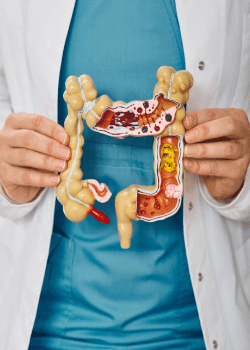
- Bifidobacterium
- Lactobacillus
- Streptococcus
- Bacillus
- Saccharomyces
They all have their own roles in keeping our gastrointestinal tract healthy.
But the top ones are how they offer further gut protection and fight off pathogens.
Now – although the bacteria strains sound complex, you can actually find them everywhere.
They are present in probiotic-rich foods and fortified drinks/foods.
But the best way to get all of their effects in one go is to choose the most convenient option.
I'm talking about a probiotic supplement that carries these best bacteria strains.
Just make sure to take the supplement correctly, to avoid any possible side effects.
Also – try to partner it with a healthy lifestyle routine to achieve optimum gut health.
Overall, the 5 best bacteria strains and the mentioned species under them are the top ones.
References:
1 – https://www.ncbi.nlm.nih.gov/-pmc/articles/-PMC4566439/
2 – https://www.sciencedirect.com/topics/-gut-microbiome/
3 – https://www.ncbi.nlm.nih.gov/pmc/articles/-PMC4528021/
4 – https://pubmed.ncbi.nlm.nih.gov/-24394457/
5 – https://www.ncbi.nlm.nih.gov/-pmc/articles/-PMC6463098/
6 – https://www.nhs.uk/irritable-bowel-syndrome-ibs/-symptoms/
7 – https://www.ncbi.nlm.nih.gov/pmc/articles/-PMC427720/
8 – https://www.sciencedirect.com/topics/-beneficial-microorganisms/
9 – https://www.ncbi.nlm.nih.gov/-pmc/articles/-PMC9019120/
10 – https://pubmed.ncbi.nlm.nih.gov/-29688793/
11 – https://www.ncbi.nlm.nih.gov/-pmc/articles/-PMC4908950/
12 – https://www.frontiersin.org/articles/10.3389/-fmicb.2016.01204/
13 – https://www.ncbi.nlm.nih.gov/-pmc/articles/-PMC8891724/
14 – https://www.ncbi.nlm.nih.gov/-pmc/articles/-PMC6811671/
15 – https://safetyservices.ucdavis.edu/surveillance-system/-enteric-bacteria/
16 – https://www.frontiersin.org/articles/10.3389/-fimmu.2019.00564/
17 – https://www.ncbi.nlm.nih.gov/-pmc/articles/-PMC6208742/
18 – https://www.ncbi.nlm.nih.gov/-pmc/articles/-PMC9666949/
19 – https://www.ncbi.nlm.nih.gov/-pmc/articles/-PMC9230978/
20 – https://www.ncbi.nlm.nih.gov/-pmc/articles/-PMC7468695/
21 – https://www.ncbi.nlm.nih.gov/-pmc/articles/-PMC4878258/
22 – https://www.ncbi.nlm.nih.gov/-pmc/articles/-PMC6304810/
23 – https://www.ncbi.nlm.nih.gov/-pmc/articles/-PMC3296087/
24 – https://www.ncbi.nlm.nih.gov/-pmc/articles/-PMC4053917/
25 – https://www.ncbi.nlm.nih.gov/-pmc/articles/-PMC6375115/


